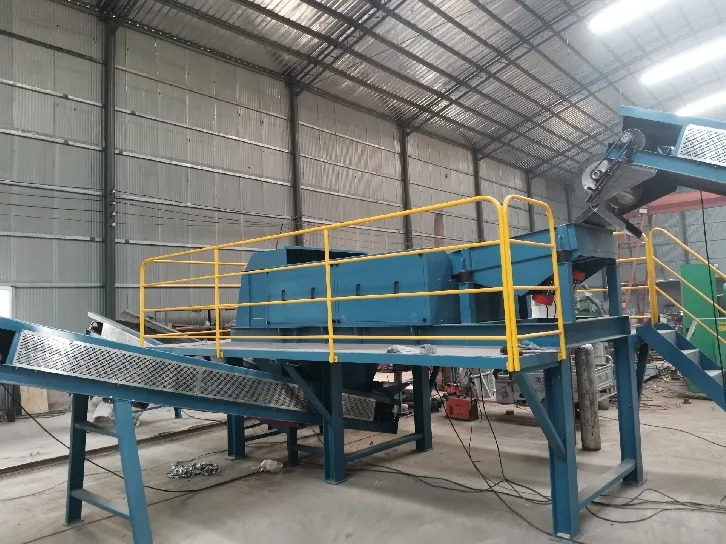

nov. . 24, 2024 12:22 Back to list
The Importance of Solid Waste Recycling Plants
As urbanization and industrialization continue to expand, the management of solid waste has become a pressing global issue. Solid waste recycling plants play a crucial role in addressing this challenge by facilitating the efficient processing and recycling of various materials. These facilities not only help reduce landfill volumes but also contribute to environmental sustainability and resource conservation.
A solid waste recycling plant typically operates by collecting, sorting, and processing recyclable materials such as plastics, metals, paper, and glass. The process begins with the collection phase, where waste is gathered from residential, commercial, and industrial sources. Once collected, the waste is transported to the recycling facility, where it undergoes a rigorous sorting process. This step is essential as it separates recyclable materials from non-recyclables and hazardous waste.
The sorting process can be manual or automated, utilizing advanced technologies like conveyor belts, shredders, and optical scanners to identify and separate different materials. This efficiency ensures that the maximum amount of recyclable material is processed, reducing the overall volume of waste sent to landfills. After sorting, the recyclable materials are cleaned, shredded, and compacted, preparing them for transport to manufacturers who can reuse them in their production processes.

One of the most significant benefits of solid waste recycling plants is their positive impact on the environment. By diverting waste from landfills, these facilities help minimize soil and water contamination caused by leachate and greenhouse gas emissions from decomposing waste. Furthermore, recycling conserves natural resources by reducing the need for virgin materials. For example, recycling aluminum saves up to 95% of the energy required to produce new aluminum from raw bauxite. This energy conservation translates to a substantial reduction in carbon emissions, contributing to climate change mitigation.
Additionally, solid waste recycling plants foster economic growth and job creation. These facilities require a skilled workforce for operations, maintenance, and management. From employment opportunities in sorting and processing to administrative roles, recycling plants can generate jobs and stimulate local economies. Moreover, the recycling industry often supports the development of green technologies and innovation, laying the groundwork for a sustainable future.
In conclusion, solid waste recycling plants are essential components of modern waste management systems. They tackle the growing issue of solid waste by providing efficient recycling processes that protect our environment, conserve resources, and foster economic growth. As communities continue to grapple with the challenge of waste management, investing in and supporting recycling facilities will be critical to creating a sustainable and resilient future for our planet. Educating the public about the importance of recycling and engaging them in these efforts will further enhance the effectiveness of solid waste recycling initiatives.
Latest news
Troubleshooting Common Eddy Separator Problems
NewsJul.04,2025
The Role of Metal Recycling Plants in Circular Economy
NewsJul.04,2025
The Impact of Recycling Line Pickers on Waste Management Costs
NewsJul.04,2025
Safety Features Every Metal Shredder Should Have
NewsJul.04,2025
How Industrial Shredders Improve Waste Management Systems
NewsJul.04,2025
How Cable Granulators Contribute to Sustainable Recycling
NewsJul.04,2025